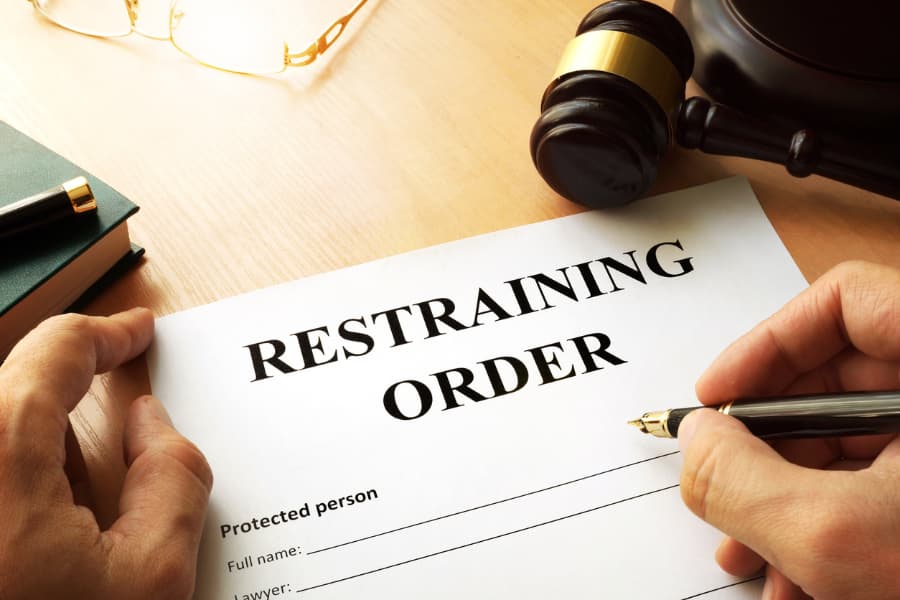
Home should be a place where you feel safe and comfortable. Unfortunately, for victims of domestic violence in Pennsylvania, this is not always the case. If you or someone you know is a victim of domestic abuse, the family law attorneys at Thomas, Conrad & Conrad can help you file a restraining order that helps protect your safety and well-being.
What Is a Restraining Order?
Known as a Protection From Abuse order (PFA) in Pennsylvania, a restraining order is issued by the court. It is designed to protect victims of domestic violence from all types of physical and emotional abuse, such as physical injury, threats of physical harm, and stalking.
What Types of Protection From Abuse Orders Are Available in PA?
There are three kinds of emergency, temporary, and final restraining orders in Pennsylvania, including:
- A Protection From Abuse Order (PFA) protects you if you are being physically injured, threatened, sexually abused, or followed by an intimate partner, someone you are dating, or a family member.
- A Protection From Sexual Violence Order (SVPO) can be filed if you’re a victim of sexual violence or continued threat of sexual violence by a person with whom you do not have an intimate relationship. For example, this type of restraining order can be filed against a stranger, friend, co-worker, neighbor, or acquaintance.
- A Protection From Intimidation Order (PFI) is specifically for minors who are being harassed, stalked, or threatened by an adult who does not have an intimate or family relationship with them.
Who Can File for a Restraining Order in Pennsylvania?
You may file for a Protection From Abuse Order against an intimate partner or family member. This includes:
- A spouse or former spouse
- Same-sex partner
- Parents or children
- Household members or persons related by blood or marriage
In Pennsylvania, you may not file for a Protection From Abuse Order against roommates, neighbors, co-workers, strangers, or classmates. However, an SVPO or PFI may be an option, depending on the circumstances. If you are an adult household member, parent, or guardian of a minor child who is being abused, you may file for a PFA on their behalf.
Our knowledgeable family law attorneys have decades of experience handling restraining order cases in eastern Pennsylvania. We can evaluate your circumstances and determine which avenue may best protect your rights and safety.
What Is Considered Abuse?
According to the Pennsylvania Protection from Abuse Act, abuse is defined as:
- Attempting to cause bodily injury, either intentionally or recklessly
- Placing another person in fear of imminent serious bodily injury
- False imprisonment, such as barring someone from leaving the home
- Sexual abuse, rape, or forced unwanted sex acts
- Physical or sexual abuse of minor children
- Stalking that places a person in reasonable fear of bodily injury
What Types of Protections Does a Restraining Order Provide?
What’s covered in an order of protection depends on the specific circumstances. An emergency, temporary or final PFA may:
- Order the defendant not to abuse, threaten, harass, or stalk you
- Order them to stay away from your home (even if it is jointly owned or leased), work, or school
- Prohibit them from having firearms
- Order the defendant to pay for losses, such as medical bills or lost wages that resulted from abuse
- In some cases, award you temporary custody of your childrenand grant temporary support for yourself and/or the children of the defendant
- Order the defendant to attend a batterers’ counseling program
How Do I File for a Temporary PFA?
 In most counties, you must go to the county courthouse to file a petition for a Protection From Abuse Order. If you need an emergency PFA after business hours or on a weekend or holiday, these are usually filed with a Magisterial District Judge.
In most counties, you must go to the county courthouse to file a petition for a Protection From Abuse Order. If you need an emergency PFA after business hours or on a weekend or holiday, these are usually filed with a Magisterial District Judge.
On the petition form, you must describe the abuse you have suffered and why you are seeking the PFA. You’ll also specify which specific protections you are seeking. Our attorneys can assist you with filling out a petition form to ensure that the order of protection covers all relevant issues related to the abuse.
How Do I File for a Final PFA?
Within 10 business days of filing for a temporary Protection From Abuse Order, a hearing will be held in front of a judge. You may have a lawyer represent you in this hearing. The judge will listen to arguments and evaluate the facts of the case. If the judge finds that accusations of abuse are valid, they will issue a Final Order of Protection, which may last from one month to up to three years.
Why Should I Hire a Restraining Order Attorney?
The defendant is entitled to present their case as well, so your abuser may be in the courtroom. Having a skilled, compassionate PFA attorney by your side to provide much-needed support can make the process less traumatic. It also ensures you have a knowledgeable advocate in your corner.
What If I’ve Been Wrongly Accused of Domestic Violence in PA?
Charges of domestic violence are taken very seriously in Pennsylvania. Unfortunately, false accusations of domestic abuse are all too common. The best way to protect your rights is to contact an experienced attorney right away. Do not contact the person who filed for the order of protection in any way. This includes in-person, via phone, text, email, any other written communications, or through a third party. If your accuser contacts you, make sure to keep all documentation.
Contact a Lehigh Valley PFA Lawyer
Whether you’re a victim who wants to file for a restraining order or you need to fight false accusations of abuse, our family law attorneys at Thomas, Conrad & Conrad are here to help you get through challenging times. Contact us online or call us at 610-867-2900 to schedule a consultation. Our experienced, caring team serves clients throughout the Lehigh Valley and Poconos Mountains region.
If you or someone you know needs help, call the National Domestic Violence Hotline 24 hours a day at 1-800-799-7233 or 1-800-787-3224 (TTY).

